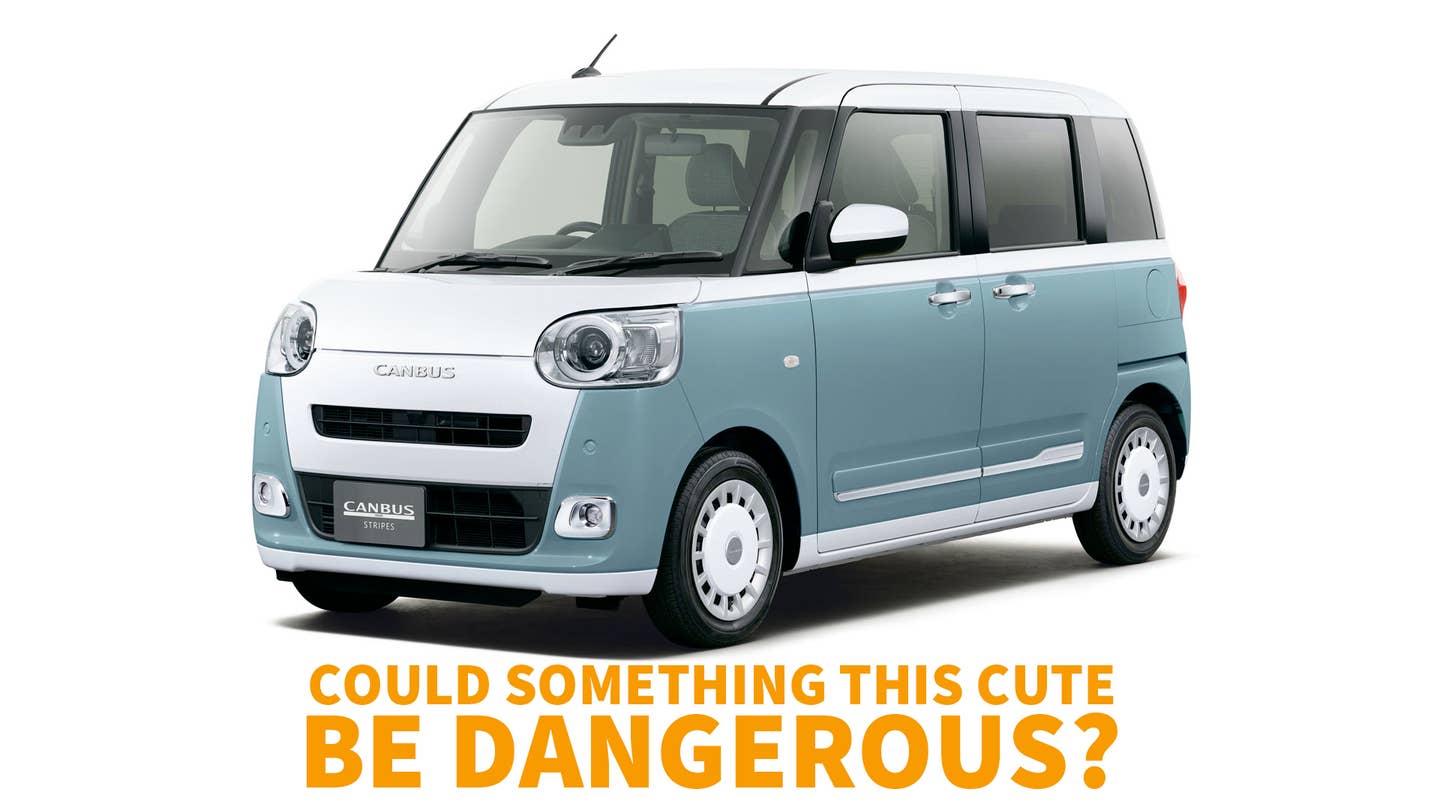The Japanese small car maker used different airbag parts for crash tests and falsified reports as far back as 1989.

An automotive industry investigation in Japan is stating that some shady safety-test rigging has been going on at Toyota’s Daihatsu brand. A huge range of vehicles dating back to the 1980s, spanning Toyota vans, Mazdas, Subarus, and Daihatsus, are involved.
In a report seen on Reuters and elsewhere, it seems some production cars built for sale were getting different airbag control units from their crash-test counterparts. The investigation also cites “false reports on headrest impact tests and test speeds for some models,” and found instances of funny business going as far back as 1989.
It’s said that 64 models are affected across a few different brands (Daihatsu, Toyota, Mazda, and Subaru). This is a new development since April, when Daihatsu was found to have cut special notches into crash-test cars to perform better in side-impact tests.
“The investigation found that there were 174 new cases in 25 test items, in addition to the door trim irregularity in April and the pole side collision test irregularity in May. There were irregularities found in 64 models and 3 engines (total number of models in production/development and discontinued), including those that had already been discontinued. The models included both Daihatsu brand vehicles and models supplied as OEM models to Toyota Motor Corporation (Toyota), Mazda Motor Corporation (Mazda), and Subaru Corporation.
We deeply apologize to our customers and other stakeholders for causing great inconvenience and concern and betraying their trust.”
The Associated Press shared that Japan’s Chief Cabinet Secretary Yoshimasa Hayashi “urged Daihatsu officials to fully explain the situation.” He’s quoted as saying “It’s extremely regrettable … damaged the trust of car owners and has shaken the foundation of the automobile certification system.”
The nation’s transport ministry had said it would be carrying out on-site inspections at Daihatsu’s Osaka HQ this week. It’s being reported that Makoto Kaiami, the chair of the third-party investigation committee, said the panel “did not believe that Toyota was responsible for the misconduct, but that Daihatsu was trying to meet expectations it had placed on itself.”
While Daihatsus may be extremely uncommon in America, this kind of thing has major international impacts when it involves an automaker as big as Toyota. On an undoubtedly related note, Toyota’s stock price slid 4% this week.
When I first heard Daihatsu was allegedly rigging crash test results I found it mildly amusing to think “maker of world’s cutest cars turns out to be evil.” But now that I’ve had a few seconds to sit with it, it’s just another grim reminder that automakers can’t be trusted to prioritize customer safety.
For the short term, Daihatsu has stopped selling many vehicles and its president issued an apologetic platitude. But it will be interesting to see if this affects Japanese auto safety regulations in a more long-term way.
If you’re really interested and want more detail, Daihatsu posted a news conference on this matter on YouTube. Here’s the version that’s dubbed in English:



